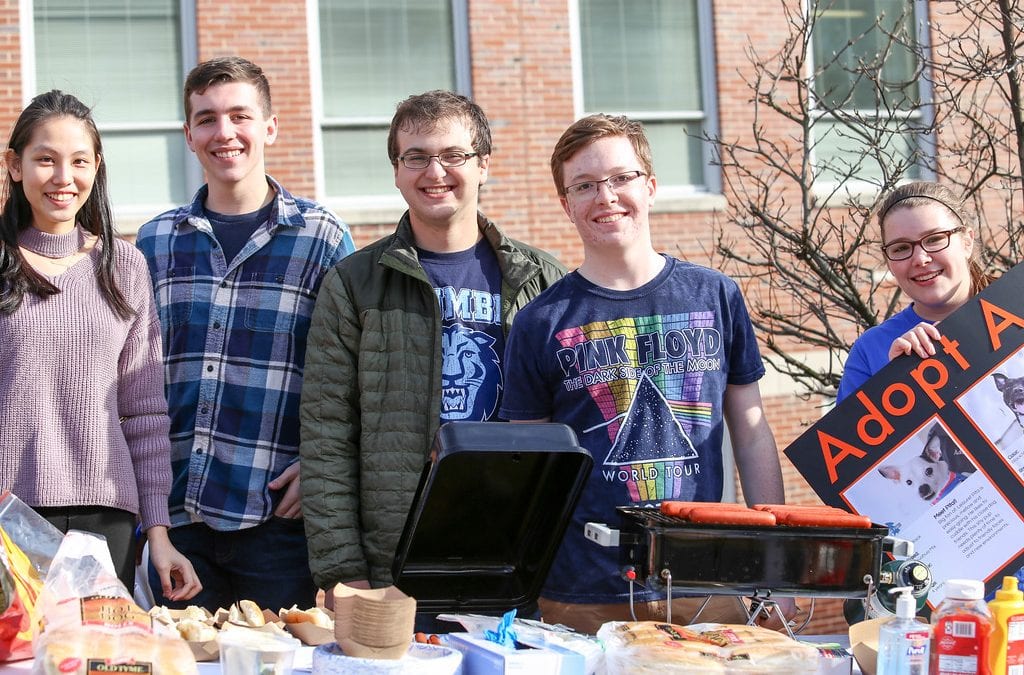By Andrew Rowan ‘19, Marketing and Communications Student Intern
Students in History Department Chair Clark Thomson and History Teacher Jake Greenberg’s economic class are busily preparing for the annual Hot Dog Economics Competition which culminates with a Hot Dog Stand Competition during lunch on Friday, January 12.
The goal of the project is to allow students the ability to apply the economic concepts that they are learning in class into a real-world business. Students create a business plan in the month leading up to the competition.
“[In their business plan], the students need to think about non-price competition. They are all selling exactly the same thing, how are they going to seperate themselves in a small business model?” said Mr. Greenberg. Demand surge, dealing with competition, and pricing are all different aspects that a business plan needs to address.
Market research and analysis was also stressed as part of the project this year. “Each of the groups had to go out into the school and talk to faculty, Middle School students, and Upper School students to figure out how to best create their company and product based upon what people want,” said Mr. Greenberg. “[That information] will inform their business plan,” said Mr. Thomson.
The class also received a presentation from Director of Marketing and Communications Mike Schlotterbeck, who spoke about marketing strategies and digital media. Many of the groups use Instagram and other social media platforms to attract buyers.
The class is divided into groups of four to six students. The competition is based on which group receives the most profit at the end of the sale. “We want students to recognize that there is a price point that they need to hit where they cover all their needs in a business,” said Mr. Thomson. He continued to say that each group must write down specifically what they sell (for example, a person who bought a combo meal needs to be marked differently from one who bought a plain hot dog) and what their expenses are so they are able to look back and justify them later.
Once the business plan is completed, it is all systems go for sale day. Mr. Thomson explained that students have to figure out “how they are going to cook, how they are going to manage clientele going through their line, are they going to encourage people to [stay at their booth], and whether or not they have certain skills at their booth that no other booth has.” Mr. Thomson explained that some groups in the past have hired extra labor from outside of the class to provide extra entertainment or to help cook the hot dogs.
Sale day is sort of like a “hot dog party,” according to Mr. Thomson. Groups try to entice potential customers, other students, with photos with characters, live music, t-shirts, and more. “It has become a social event and it allows you to support your friends,” explained Mr. Greenberg. “The booths are really fun and bring everyone together, so I think that is part of the reason why it has maintained its popularity.” Hot dogs were chosen for the competition because they have a high profit margin and allow for some creativity.
The Hot Dog sale day will take place on Friday, January 12. Afterwards, students debrief and compare their projections to what actually happen. Mr. Greenberg explained that students are able to look back at their business plan and figure out what went right and what went wrong. “Regardless of whether or not they successfully turned a profit, Mr. Thomson and I want them to be able to apply the lessons of economics that we have been teaching to explainwhat happened and why it happened,” said Mr. Greenberg.

